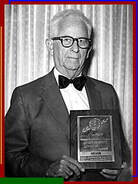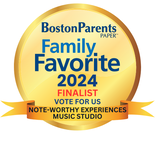The differences and similarities between Piano Guild, Royal Conservatory, and ABRSM adjudications5/26/2023 We are often asked what steps student musicians should take after performing in informal and formal recitals. We are also asked if there are steps students considering majoring or minoring in music should take before their collegiate auditions. The American College of Musicians Piano Guild, Royal Conservatory of Music, and Associated Board of Royal Schools of Music are three of the most popular music examination programs that offer students graded levels of music theory and performance exams worldwide. While all three programs share similar goals of promoting music education and nurturing musical talent, they have some key differences.
1. Piano Guild: Piano Guild is a music examination program focusing solely on piano performance. The American College of Musicians runs it and has been operating since 1929. Piano Guild offers graded levels of piano performance exams to students of all ages and levels of experience, from beginner to advanced. The exams are held annually and are judged by certified examiners who provide written feedback and comments on the student's performance. The students typically memorize their pieces and must perform the coordinating memorized scales and chord cadences for each piece. Students and instructors can select pieces from any method or repertoire book. Students may opt to be graded on skills such as sight reading, ear training, scales, and arpeggios. Each piano teacher must be a member of the American College of Musicians to register students. There is no studio or school membership for Guild. Piano Guild auditions occur at a local school or studio in the spring or early summer. (Renee Bordner is the Sudbury Chairperson and hosts the auditions for all Boston MetroWest studios at her studio in her home). Piano Guild is particularly popular in the United States. 2. Royal Conservatory of Music: The Royal Conservatory of Music (RCM) is a Canadian music education organization that offers graded levels of music theory and performance exams in various instruments, including piano, violin, voice, and guitar. The RCM has operated since 1886 and is one of Canada's oldest and most respected music institutions. The exams are held annually, and students are graded based on their performance and understanding of music theory. RCM does not require instructors to be members for students to participate, and our studio is a participating studio. Students must perform pieces from the current year's edition of RCM books. RCM exams are offered at different times throughout the year. The RCM also offers teacher training programs and a comprehensive music curriculum for students of all ages. 3. Associated Board of the Royal Schools of Music: The Associated Board of the Royal Schools of Music (ABRSM) is a British-based music education organization that offers graded levels of music theory and performance exams in various instruments, including piano, strings, woodwinds, and brass. The ABRSM has operated since 1889 and is one of the world's most respected and widely recognized music institutions. The exams are held annually and are graded by certified examiners based on the student's performance and understanding of music theory. Students are NOT required to memorize their pieces and must perform pieces from the current edition of the ABRSM books. The ABRSM also offers teacher training programs and a comprehensive music curriculum for students of all ages. In summary, while all three organizations are committed to promoting music education and nurturing musical talent, their focus and geographical scope differ. Piano Guild is focused solely on piano performance and is popular in the United States. In contrast, RCM and ABRSM offer graded levels of theory and performance exams in various instruments and are prevalent in Canada and the UK, respectively. To learn more about the Piano Guild, we have more information here.
0 Comments
By: Renee Bordner Piano Guild Auditions are something that we offer our piano students each spring. Each year, I am asked by students, parents and even some teachers many questions about it. I am always happy to answer any and all questions as I want students to make an informed decision about participating. There is a fair amount of information available on the website and a great deal of information available in the Guild Syllabus. However, I am going to attempt to sum up this information for students, parents and instructors here. I have prepared students for Piano Guild for many years in Pennsylvania and Massachusetts. In Massachusetts, I was the Co-Chair of the Concord Center for a period of time before creating a Sudbury Chapter in 2017. The Center Chairperson is responsible for securing the location of the auditions. I have elected to host the auditions at our studio in my home. This also means that instructors from outside of our studio are also welcome to bring their students to our audition center which does occur each year. Students of all ages and stages may participate in the auditions. The student may register to play one to twenty pieces for the Judge. A student must register in advance with an instructor who is a Guild Member who submits the payment and registration card to Headquarters. Once the Guild Fee is submitted to Headquarters, it is non refundable. If a student wishes to change the skill level or number of pieces he or she is playing, there is a $10 fee to receive an updated certificate / report card. Headquarters will assign the dates and times that each instructor is allotted to have students perform for the Judge. The teacher is then responsible for communicating with the students and parents about the assigned dates and times. The scheduling department at Headquarters assigns the Judge to adjudicate at a center. The same judge cannot return to a center for three years. According to the syllabus and website, "The Piano Guild, as we are called (a division of the American College of Musicians), was founded in 1929 by Dr. Irl Allison. Since that time, the Guild has grown to more than 850 audition centers where thousands of students enroll annually in our international auditions, which are held throughout the U.S. and abroad. Our primary function is to establish definite goals and awards--in noncompetitive auditions--for students of all levels, from the earliest beginner to the gifted prodigy. With the exception of our "special" programs, teachers have the flexibility to choose all repertoire for student auditions. Students are judged on individual merit, by a well-qualified music professional, in the areas of accuracy, continuity, phrasing, pedaling, dynamics, rhythm, tempo, tone, interpretation, style, and technique. Our purpose is to encourage growth and enjoyment through the study of piano." "Students are adjudicated by an international panel of judges and receive report cards, certificates, and fraternity pins. Programs are diversified to meet the needs of both students and teachers. Programs are flexible and include repertoire as well as technical goals (musicianship phases)." Guild offers students the opportunity to perform in front of one judge versus a large audience and or a panel of judges in a large university like setting. Each student receives a score and comment card full of constructive feedback. The scores are not posted or public. Students can compete with him or herself year after year to improve the score, increase the level of difficulty of pieces and or the number of pieces performed. This a format for students and instructors to set measurable and attainable goals each year. I often explain this to parents and child care givers by equating this to a third party audit. It is a platform for students to receive constructive feedback to help the student to improve. It is a great stepping stone for students who wish to explore other graded systems, competitions and festivals. Guild welcomes both the students who study piano for recreation and leisure as well as the students who intend to major or minor in music. This year, I will be conducting a Piano Guild Prep workshop for our students. Details will be in our monthly newsletters. This workshop is designed for both students who are new to the Guild process and to students who are seasoned members. I would be honored to answer any additional questions about Piano Guild, if I do not know the answer, I will find the answer for you. Best wishes in your musical adventures. Renee Bordner is the owner of Note-worthy Experiences Music Studio and became a member of the Piano Guild Hall of Fame in 2019. |
Categories
All
Archives
December 2023
|
About UsNote-worthy Experiences Music Studio LLC, located at 75 Witherell Drive Sudbury, Massachusetts 01776 provides private in-home and online/virtual music lessons in the Boston MetroWest area of Massachusetts.
We also provide private lessons at Nashoba Brooks School. Contact Renee Bordner at 978.443.0480 or rbordner@note-worthyexperiences.com. Not a member of our studio yet? Join our mailing list to receive news and updates! All Copyrights Reserved (c) 2015-2024
|
What Our Students Are SayingOur Privacy Policy |

 RSS Feed
RSS Feed
